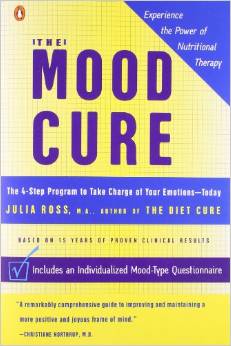In this blog post, Kelly Dorfman, MS, RND, offers sleep strategies for autism, ADHD, SPD and other developmental delays.
Sleep disturbances are common in children with developmental and attentional issues because they have trouble recognizing their body’s need for rest. Feeling sleepiness apart from all the other incoming information is as difficult as other sensory-integration tasks, such as paying attention in a crowded classroom or getting to the bathroom in time. Poor sleep regulation is simply another symptom of the sensory system getting confused and overloaded.
Adults with sleep problems are instructed to get more exercise, avoid stimulants and have a regular bedtime. The same advice works well for children with regulation issues.
Encourage Motor and Sensory Stimulation
Providing motor and sensory stimulation during the day in the form of exercise or occupational-therapy techniques like brushing, prevents the need to seek out excitement at three o’clock in the morning. One way the body communicates its unmet needs is by restlessness or by waking itself up.
Even with proper exercise, children with high sensory-stimulation needs may not be able to last the 10 to 12 hours through the night (the amount of sleep needed by most children) without physical contact. Many parents report that their child wakes at night and cannot fall back asleep until wedged in bed between them.
Because our culture has moved away from a shared family bed, this presents an emotional dilemma for parents (though the arrangement tends to benefit the child). A possible compromise position would be a small mattress on the floor to accommodate night wakers.
Establish Regular Bedtime
A regular bedtime provides crucial structure for those who cannot easily connect with their biological clocks. The neurotransmitter, serotonin, increases in concentration through the day, reaching peak levels when it is time to sleep.
When in balance, we sense the serotonin build-up as sleepiness and a signal to retire for the evening. If the sleepy feeling is absent or serotonin is imbalanced, sleep can be re-regulated anyway by giving the body a rigid schedule. The hormone will adjust itself to the schedule over time.
Eliminate Stimulants
Stimulants are plentiful in children’s lives today in the form of artificial flavors, colors, and additives, as well as in medicines routinely prescribed for ADD/ADHD and asthma. The serious sleep problems caused by Ritalin were tragically highlighted when several children died of heart failure while using the drug Clonidine (attempting to control the sleeplessness engendered by Ritalin).
If sleep is an issue, parents might consider alternatives to stimulant medication and should try to minimize dietary stimulants by avoiding caffeinated and highly processed foods.
Identify Hidden Allergens
A common cause of sleep disturbance is unrecognized food sensitivities and intolerances. Removing allergens from the diet can help those who wake frequently or have delays in falling asleep. For year-round sleep interruptions, look for allergies to milk products and family pets.
Environmental allergies, such as pollen, are easier to spot because they cause seasonal changes in sleep patterns. Mold allergies, however, can be hard to diagnose because exposure shifts unpredictably throughout the year.
Correct Nutritional Deficiencies
In addition to allergies, calcium and magnesium deficiencies can also contribute to restlessness. Review your child’s intake of these nutrients and be sure he/she is getting 700-1,000 mg of calcium and at least 100-300 mg of magnesium in well-absorbed forms.
Look Into Melatonin
If your child still has sleep problems, talk to your health care provider about the possible use of melatonin, which has a proven sleep-inducing effect in humans. In addition, it appears to strengthen the immune system.
Melatonin (N-acetyl-5-methoxyserotonin) is a hormone-like compound produced by the brain’s pineal gland and other tissues. The enzymes that control melatonin synthesis are activated by light and deactivated by dark. Consequently, the hormone affects the regulation of natural rhythms, particularly sleep cycles.
One small study found that melatonin successfully treated serious sleep disorders in hyperactive and neurologically compromised children. Prompt sedation, improved sleep quality, and decreased irritability occurred in almost all 15 cases with no other side effects.
Though no melatonin toxicity has been found despite the administration of extremely large doses, the medical community recommends using it with caution. Much of the concern is a reaction to melatonin’s immense popularity and heavy usage among the lay public. Drug interactions are of particular concern.
Melatonin should not be taken with Prozac or other SSRI drugs because they already increase serotonin levels. As for dosage, generally small doses (0.5 to 1.5 mg) are recommended for children and should be administered one hour before the desired bedtime. Sometimes several days are needed before parents notice results. As with any over-the-counter substance, parents should discontinue melatonin immediately and consult their health care provider if they suspect problems.
About Kelly Dorfman MS LND
Kelly Dorfman is one of the world’s foremost experts on using nutrition therapeutically to improve brain function, energy and mood. Kelly’s special talent for integrating information from many sources and finding practical solutions has made her a popular speaker and workshop leader. She lectures extensively and is a member of Platform (formerly the National Speakers Association) and has been featured on numerous television programs including CNN’s American Morning.
Kelly’s award winning book, Cure Your Child With Food: The Hidden Connection Between Nutrition and Childhood Ailments (formerly known as What’s Eating Your Child) was given rave reviews by Publishers Weekly and the Washington Post.

As a go-to expert on nutrition issues, Kelly is frequently interviewed and quoted in the media. She has been featured in articles in The Wall Street Journal, Parade, Bethesda magazine, Living Without magazine, and the Huffington Post.
Kelly holds a master’s degree in nutrition/biology and is a licensed nutrition dietitian. She is a co-founder of Developmental Delay Resources, which has merged with Epidemic Answers. You can find out more about Kelly and her practice at kellydorfman.com
Still Looking for Answers?
Visit the Epidemic Answers Practitioner Directory to find a practitioner near you.
Join us inside our online membership community for parents, Healing Together, where you’ll find even more healing resources, expert guidance, and a community to support you every step of your child’s healing journey.
Sources & References
Akerstedt, T., et al. Subjective and objective sleepiness in the active individual. Int J Neurosci. 1990 May;52(1-2):29-37.
Brzezinski, A. Melatonin in humans. N Engl J Med. 1997 Jan 16;336(3):186-95.




